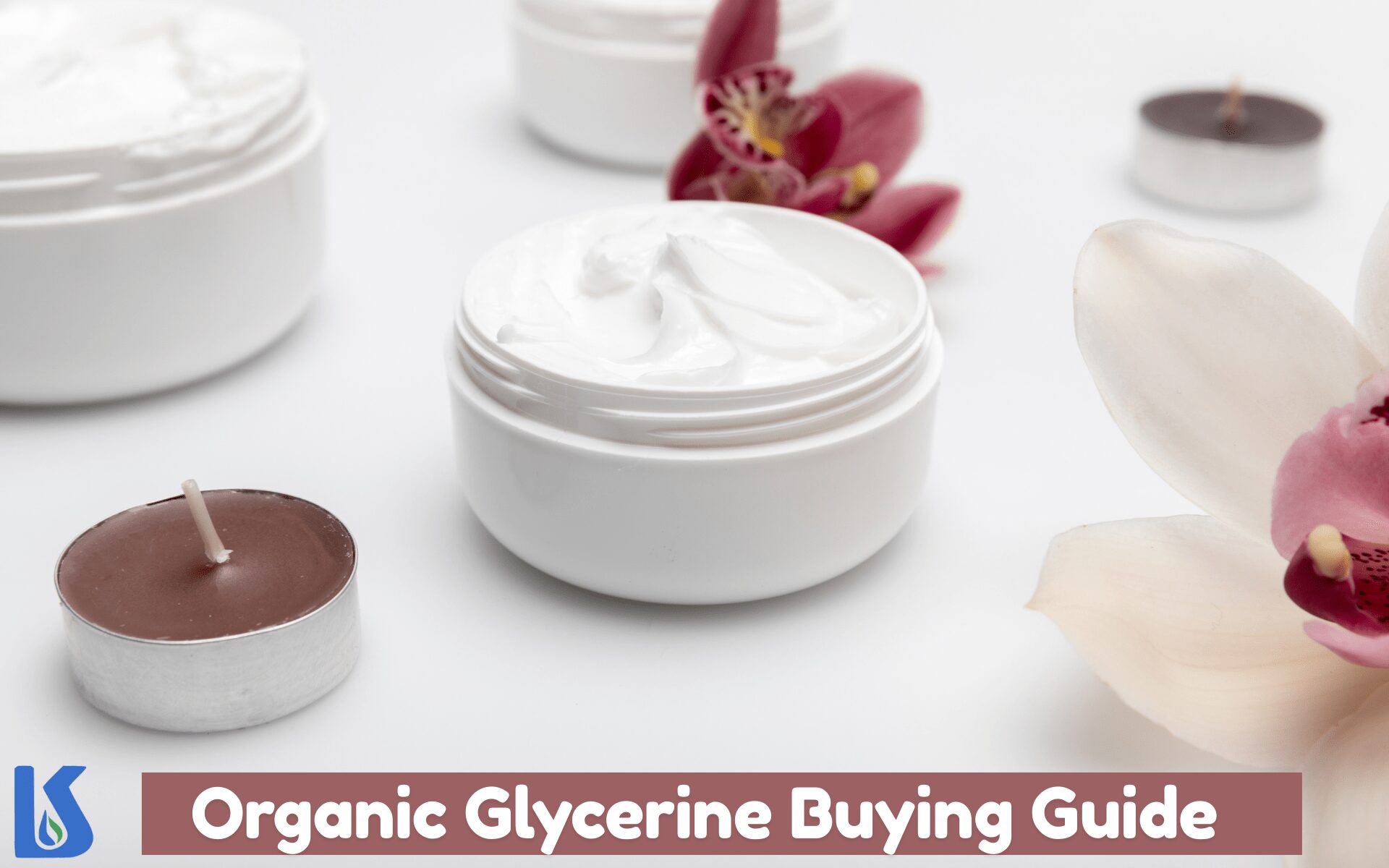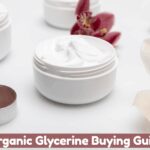Organic glycerin (also known as organic glycerine or glycerol) is a versatile ingredient used in countless industrial applications — from cosmetics and pharmaceuticals to food processing and plastics. But for industrial buyers navigating online suppliers, selecting a truly organic, high-quality glycerin isn’t as straightforward as it seems.
Due to increasing demand for eco-conscious, USDA-certified ingredients, the market is saturated with misrepresented products and inconsistent quality standards. If you’re an industrial glycerin buyer, purchasing from legitimate, compliant vendors can help you avoid costly missteps.
This guide outlines the critical dos and don’ts of buying organic glycerin online — plus, how to vet suppliers, identify key product features, and match glycerin to your application needs.
Dos: Best Practices for Buying Glycerin Online
Before placing a bulk order, follow these best practices to ensure you’re sourcing from a reliable, certified, and high-performing supplier.
Do verify the certification source
- Look for USDA Organic Certification from reputable certifying bodies, such as Quality Assurance International.
- Cross-check certificate numbers or issuer names directly on accreditation websites.
- Be cautious of vague claims like “natural” or “plant-based” that lack formal verification.
Do check the source of the glycerin
- Know which vegetable fat or oil the glycerin is derived from (e.g. palm, coconut, flaxseed)
- Avoid synthetic or petroleum-derived versions labeled as “vegetable glycerin.”
Note: Kraft Chemical sells organic glycerin derived from certified organic flaxseed — a rare, high-purity source.
Do ensure the glycerin is USP or food grade if your application demands it
- USP-grade glycerin ensures high purity (99.7% or greater) and is suitable for both personal care and pharmaceutical applications.
- USP organic glycerin is food-grade and is also suitable for food and beverage processing applications.
- Industrial-grade glycerin that’s certified organic should still meet high standards, especially for sensitive formulations.
Do request a Certificate of Analysis (COA)
- A COA confirms the purity, microbial count, and batch number.
- Always request recent documentation, ideally no more than 12 months old.
- Suppliers who can’t produce COAs should be flagged as risky.
Do an audit of supplier compliance history
- Investigate any recalls, FDA import alerts, or regulatory violations.
- Reputable suppliers maintain clean records and clear traceability.
- Visit the supplier’s “About Us” page for transparency on sourcing and compliance.
Do assess shipping and handling capabilities
- Organic glycerin is sensitive to moisture and temperature shifts.
- Ensure the supplier uses sealed drums, maintains temperature-controlled storage, and correctly labels the products to maintain product integrity.
- Ask if they can provide a Safety Data Sheet (SDS).
Do compare pricing for bulk tiers
- Evaluate bulk glycerin pricing at 5-gallon, 55-gallon, and 275-gallon scales.
- Ask about freight-inclusive pricing and wholesale contract discounts.
- Pricing transparency is often a good indicator of vendor reliability.
Don’ts: Common Pitfalls to Avoid
While it’s essential to follow best practices, it’s equally important to avoid these common missteps when sourcing organic glycerin online.
Don’t assume “organic” means organic-certified
- “Organic” on the label doesn’t guarantee certification.
- Always verify USDA, Ecocert, or equivalent standards — vague marketing claims often mask conventional products.
- Misrepresented products may compromise formulation safety and legal compliance.
Don’t buy from platforms that lack transparency
- Avoid suppliers without a listed business address, phone number, or product documentation.
- If the site lacks detail on certifications, sourcing, or handling — that’s a red flag.
- Stick with vendors who clearly outline their sourcing and quality controls.
Don’t overlook hidden additives
- Some low-cost glycerin products contain hidden preservatives or diluted formulations.
- Check ingredient listings and COAs for additives like parabens, alcohols, or synthetic agents.
- Always request a sample or third-party test results if possible.
Don’t skip regulatory and safety documentation
- Missing SDSs, COAs, or allergen declarations can lead to liability issues.
- Without these, you risk sourcing a product that’s unfit for food, cosmetic, or pharmaceutical applications.
Don’t ignore customer reviews and return policies
- Lack of reviews or vague testimonials may indicate a newer or untrustworthy supplier.
- Also, be aware of non-refundable fine print, especially when ordering in bulk.
- Trustworthy companies often offer sample sizes or low minimum order quantity (MOQ) trials.
Don’t buy purely based on price
- Very low prices often signal outdated stock, mislabeling, or low-grade products.
- You’re better off investing in a verified, consistent supply chain — especially for regulated industries.
Key Features to Look for in Industrial-Grade Glycerin
Industrial buyers should understand what truly sets high-grade glycerin apart — especially when ordering in bulk.
Purity (≥99.7%)
- Look for USP or food-grade certification with a purity of≥99.7%.
- Lower purity can affect texture, viscosity, and chemical compatibility in formulations.
Viscosity and Color
- Consistent viscosity and water-clear color reflect quality and proper storage.
- Yellowing or separation can be a sign of contamination or degradation.
Origin of Feedstock
- Organic glycerin should come from non-GMO, organically farmed plant-based feedstocks.
- Kraft Chemical sources from organic flaxseed, which offers high purity and sustainability.
Moisture and Water Content
- Excess water content (above 5%) can dilute performance and reduce shelf life.
- COAs should report water levels — avoid products with “cloudy” or uneven consistency.
Absence of Impurities or Odors
- Quality glycerin should be odorless and colorless.
- A strong smell or off-color indicates poor handling or inferior feedstock.
How to Vet Online Suppliers Before Buying Bulk Glycerin
Even experienced procurement teams can fall into traps when sourcing bulk glycerin. These common supplier vetting mistakes can lead to product recalls, production downtime, or compliance issues.
Confirm that the “vegetable glycerin” is organic
- “Vegetable-based” doesn’t guarantee the ingredient is USDA organic.
- Many non-organic glycerins are made from genetically modified (GMO) soy or unsustainable palm oil.
- Only USDA-certified products ensure no synthetic pesticides or chemical processing.
Request documentation
- Never accept a product without a COA and SDS.
- Missing documentation is a red flag for low-grade or counterfeit glycerin.
- Organic glycerin suppliers should always provide transparent specs and test data.
Ask about the country of origin
- Country of origin impacts both quality and regulatory compliance.
- Some international suppliers may not meet U.S. FDA, EPA, or USDA standards.
- Look for glycerin from trusted organic-certified countries.
Check for appropriate storage and transit policies
- Organic glycerin is hygroscopic — it absorbs moisture, which can degrade purity.
- Ensure the supplier uses airtight, food-safe drums and ships in climate-controlled conditions.
Don’t trust rock-bottom prices
- Ultra-low prices often indicate a diluted or impure product.
- High-quality organic glycerin requires costly raw material sourcing and processing.
- If a price looks too good to be true — it likely is.
Top Use Cases in Industrial Applications of Organic Glycerin
Organic glycerin is utilized in a variety of industries due to its non-toxic, odorless nature, and effective moisturizing properties.
Personal Care & Cosmetics
- Lotions, soaps, facial cleansers, body scrubs, and shampoos
- Acts as a humectant, drawing moisture to the skin
- Compatible with “clean beauty” and vegan product lines
Food & Beverage
- Used in icing, candy, baked goods, and beverages
- Helps maintain moisture and texture
- Ideal for organic-certified and non-GMO food lines
Pharmaceuticals & Supplements
- Capsules, cough syrups, herbal tinctures
- Used as a solvent, stabilizer, and sweetener substitute
- USP grade ensures safety and reliability in medicinal use
Industrial & Technical
- Plasticizers, antifreeze agents, and de-icing fluids
- Found in paints, coatings, and printing inks
- Organic grade may be used in sensitive or regulated environments
Where to Buy Organic Glycerin Online
If you’re ready to source organic glycerin that’s certified by Quality Assurance International, choose Kraft Chemical. We provide:
- Full documentation (COA, SDS, Organic Cert)
- Transparent origin disclosure
- Bulk pricing options
- Reliable, climate-controlled logistics
- Dedicated support for industrial buyers
Kraft Chemical offers premium USDA organic glycerin derived from flaxseed oil — perfect for food, pharma, and personal care products. With decades of experience supplying industrial formulators, we prioritize purity, compliance, and responsive service.
Receive a Bulk QuoteComments are closed.






